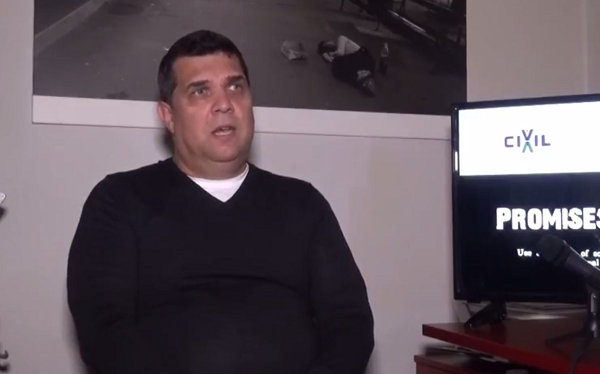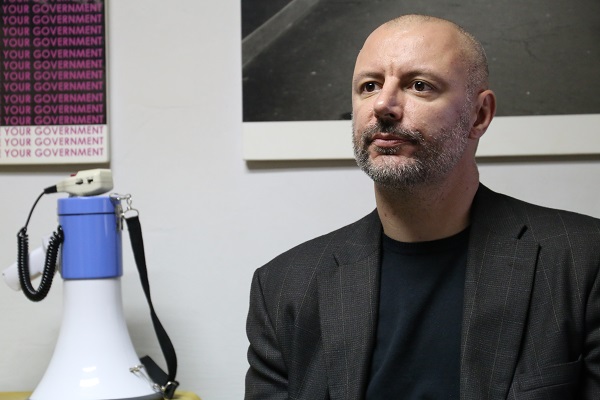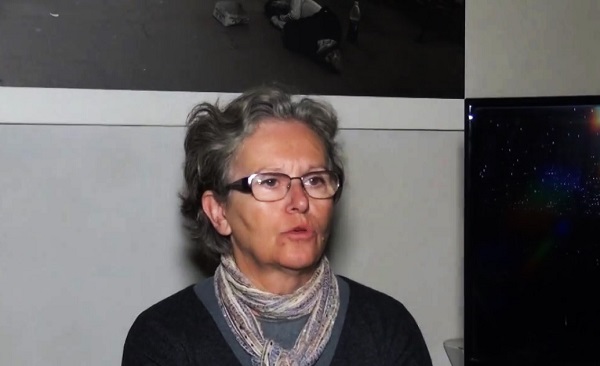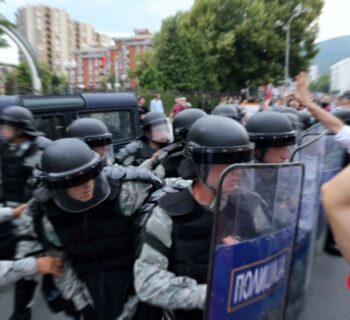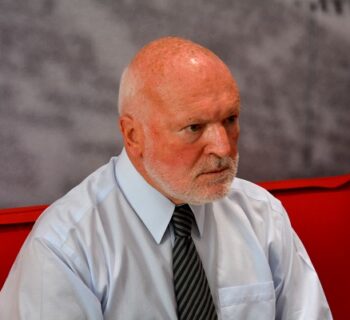“Citizens are promised and offered various programs, especially the target group of the socially disadvantaged categories, and only for us to see afterwards that nothing of that is actually being realized, or it is but in a very small part. At the end, these citizens are left with the same status”, says citizen activist Zekir Abdulov from the Delcevo non-governmental organization “Kham” (Sun) in an interview for CIVIL Media.
CIVIL Media: Are the socially disadvantaged categories in Macedonia abused in a political or electoral context? What are your realizations and analysis?
ABDULOV: As a representative of the civil society sector that deals precisely with socially disadvantaged categories, more specifically, of the non-governmental organization whose target group is primarily the Roma community, which is one of the already known social categories, I can freely say that based on our research, the Roma community and the other socially disadvantaged categories are also the ones who are usually mostly abused by political representatives. Most of all, by candidates who are campaigning in the pre-election period, during the election period and even in the post-election period. As categories that are most disadvantaged, they quite often find themselves in a situation of being manipulated, of being promised many things, such as: employment, social assistance, and very often accepting certain candidates or supporting candidates is a condition for receiving compensation for caregivers. We can also notice abuse of social categories in respect to their seasonal employment, and all programs concerning socially vulnerable categories. They are promised all of these programs, they are offered to the citizens, especially to that target group, but afterwards we see that nothing of this is realized, or a very small part of it. At the end, the citizens are again left with the same status.
CIVIL Media: Which promises for social justice are realistic, and which promises are a kind of political corruption, or are playing with the expectations of the voters?
ABDULOV: Unfortunately, recently, we can very rarely see realistic promises, because during campaigns bigger things are promised like a bait, or as an opportunity to win the vote of citizens. That is corruption, bribery, giving money in order to gain a vote from the citizens, seasonal employments, employments without a decision and without contracts…
CIVIL Media: What are the social and political consequences from abusing the issues in the area of social justice?
ABDULOV: Following all the abuses I mentioned above, there may be certain benefits that the vulnerable categories do receive, but that is momentarily. This is assistance that is paid only once, very small amounts of money that they receive to give their vote or certain interest. However, when all of that ends, they are left in the same position. Evidence for this is the unemployment that is falsely decreasing. On the other hand, migration is a factor that is contributing to the allegedly decreasing unemployment rate, whereby the number of beneficiaries of social assistance and the poverty threshold are growing. These are indicators showing that the situation of these vulnerable categories is not getting better at all, on the contrary, despite the intervention measures that are given in the pre-election period, they remain only as a bait for the citizens to be abused. The situation of those same people has not improved at all, but on the contrary, we can see that the number of families that are under the poverty threshold is increasing. We can see citizens, or families from socially disadvantaged groups increasingly more on the streets, and increasingly more in a situation of seeking basic existence, in particular, seeking food. These are indicators showing that the situation of the citizens, despite the huge promises, is not improving, but on the contrary, that the situation of these categories is becoming worse, day by day.
CIVIL Media: What can and what should the institutions, political parties, unions and civil society do in order to prevent the abuse of socially disadvantaged categories, and overall the topics in the area of social justice in the political and electoral context?
ABDULOV: I will start with the civil society sector. Our task, as always, is to educate, inform and motivate citizens…To protect some of their rights within the framework of our possibilities. We consider that a significant part of the civil society sector has been doing this lately, but there is still much work in that area. Concerning the institutions, they need to be depoliticized. They need to step away from the political parties, primarily, from the ruling political parties that are using the institutions for their interests. Political parties that are in a pre-election or post-election period, will have to realize their promises, their programs…They need to make efforts for those programs to be implemented and realized. They should not promise too much, or not promise what is unrealistic, but rather to maximally realize what is in their platform, in their program. The institutions have to be separated from politics.
CIVIL – Center for Freedom is implementing the pilot project “Promises and Abuses”, which deals with abuse of social justice for political and electoral purposes. The goal of the project is to contribute to the strengthening of public awareness on abuses in the sphere of social justice in the electoral context, as well as to prevent manipulative practices of the political centers of power. The project is implemented in cooperation with the Heinrich Bὅll Foundation – Office in Sarajevo.
This post is also available in: AlbanianMacedonian
 Македонски
Македонски Shqip
Shqip English
English
